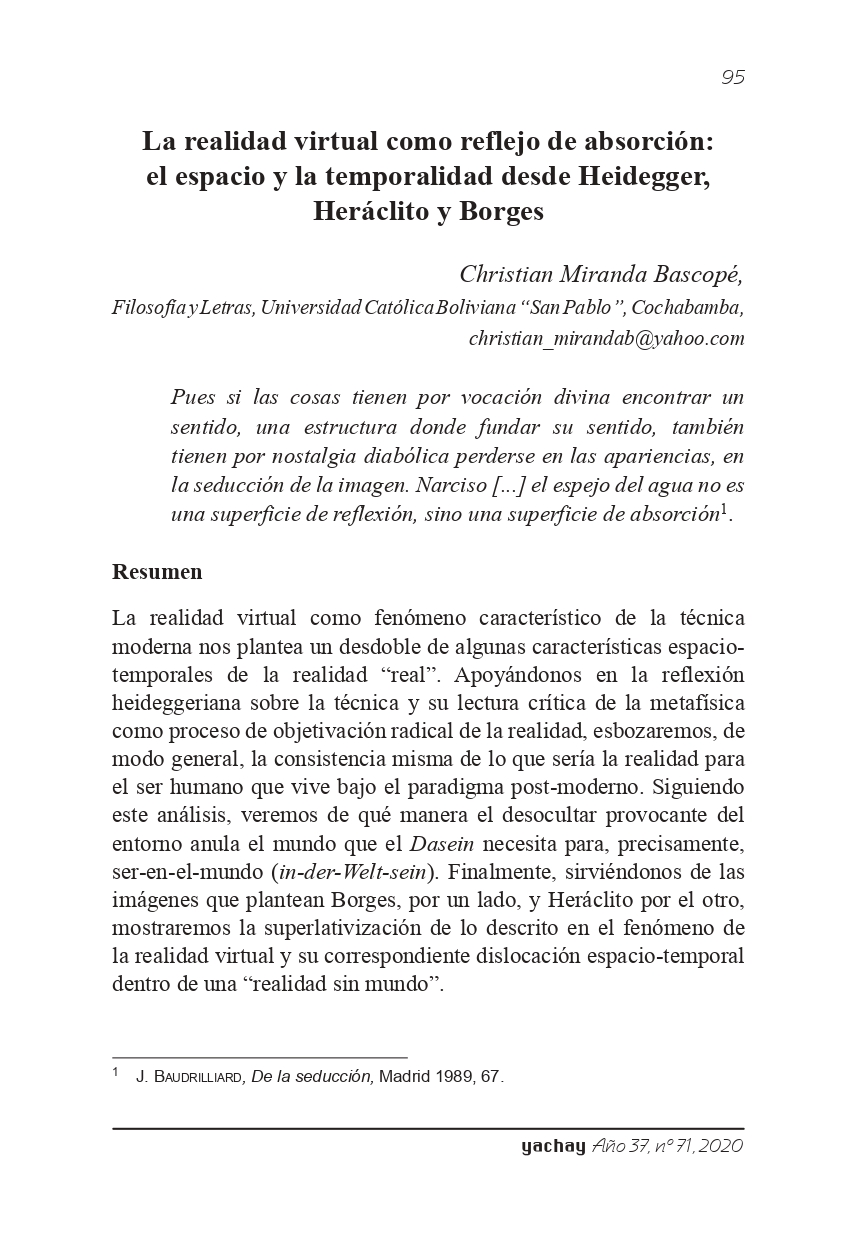La realidad virtual como reflejo de absorción: el espacio y la temporalidad desde Heidegger, Heráclito y Borges
DOI:
https://doi.org/10.35319/yachay.20207116Palabras clave:
Realidad virtual, nihilismo, representación, mundo, Martin HeideggerResumen
La realidad virtual como fenómeno característico de la técnica
moderna nos plantea un desdoble de algunas características espaciotemporales
de la realidad “real”. Apoyándonos en la reflexión
heideggeriana sobre la técnica y su lectura crítica de la metafísica
como proceso de objetivación radical de la realidad, esbozaremos, de
modo general, la consistencia misma de lo que sería la realidad para
el ser humano que vive bajo el paradigma post-moderno. Siguiendo
este análisis, veremos de qué manera el desocultar provocante del
entorno anula el mundo que el Dasein necesita para, precisamente,
ser-en-el-mundo (in-der-Welt-sein). Finalmente, sirviéndonos de las
imágenes que plantean Borges, por un lado, y Heráclito por el otro,
mostraremos la superlativización de lo descrito en el fenómeno de
la realidad virtual y su correspondiente dislocación espacio-temporal
dentro de una “realidad sin mundo”.
Descargas

Descargas
Publicado
Cómo citar
Número
Sección
Licencia
Derechos de autor 2020 Revista Yachay

Esta obra está bajo una licencia internacional Creative Commons Atribución-NoComercial 4.0.
De acuerdo a la Ley 1322 de Derechos de Autor en Bolivia, la Revista YACHAY respeta los derechos morales de los autores, amparando la parternidad e integridad de sus obras publicadas.




